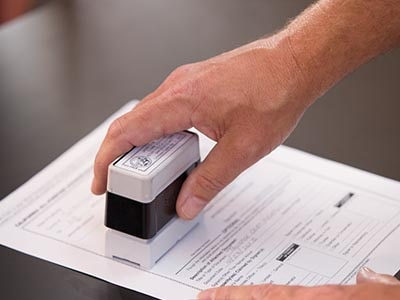Experienced Conveyancer: Navigating Residential Or Commercial Property Transfers with Competence
Experienced Conveyancer: Navigating Residential Or Commercial Property Transfers with Competence
Blog Article
Debunking Notarial Work: Simplifying the Duty and Value of Notaries
Their function, often shrouded in mystery for numerous, carries significant weight in guaranteeing the validity and integrity of essential files. By deciphering the complexities losing and bordering notarial techniques light on the relevance of their acts, a more clear understanding arises of the essential duty notaries play in promoting the material of legal and legal agreements.
The Background of Notarial Work
The history of notarial work dates back to ancient civilizations, where scribes played a critical function in taping vital info and validating files. This led to the growth of notaries, people selected by the state to act as objective witnesses in legal matters.
During the Center Ages, notaries gained importance in Europe, with their features increasing to include preparing lawful records, accrediting trademarks, and preserving documents. The rise of worldwide trade even more stressed the significance of notarial work in verifying contracts and contracts throughout borders.
In the modern-day period, notaries remain to play an important function in lawful and service purchases by verifying identities, confirming the authenticity of files, and protecting against fraudulence. Their duty in certifying the validity of agreements adds a layer of safety and depend on to the ever-evolving landscape of business and regulation.

Responsibilities and Responsibilities of Notaries
The historical advancement of notarial job from old people to the contemporary era has actually formed the distinct duties and duties that notaries maintain in legal and business purchases today. Notaries play an important role in validating the authenticity of documents and the identification of notaries. Among their main obligations is to witness the signing of essential papers, such as wills, actions, and agreements, to make sure that all parties are participating in arrangements purposefully and willingly. Notaries additionally verify that signatories are of audio mind and not under duress or threat.
They license duplicates of initial records, giving guarantee to establishments that the duplicates are true replicas of the originals. In general, the tasks and obligations of notaries are crucial in securing the integrity and legality of different files and purchases - Notary.
Notarial Certificates and Signatures
Exemplifying meticulous attention to information, notarial certifications and signatures function as vital components in confirming the credibility of lawful records. Notarial certificates typically consist of essential details such as the day of notarization, the names of the notaries, a summary of the paper, and the notary's official seal. These certificates supply a clear document of the notarial act, making certain that the paper can be quickly identified and mapped back to the notary who oversaw the procedure.
Signatures play a pivotal duty in notarial work, as they signify the arrangement and permission of the events included. Notaries thoroughly witness the finalizing of files to validate the identity of the signatories and verify that they are signing of their very own free choice. By fastening their official seal and trademark to the file, notaries license that the required treatments have been complied with which the file is legitimate and enforceable.
Basically, notarial certificates and trademarks are the hallmark of credibility in lawful transactions, giving assurance pop over to these guys to all celebrations involved that the files are legit and binding.
Significance of Notarial Acts

Notarization Process Explained
Discussing the notarization process offers clearness on the vital steps included in validating legal files. The notarization procedure typically starts with the specific offering the paper to a notary public. The notary then confirms the signer's identification with appropriate recognition techniques. When the identification is verified, the notary ensures that the specific signing the record does so voluntarily and without any kind of browbeating.

Final Thought

Notarial certificates usually contain essential information such as the day of notarization, the names of the signatories, look what i found a summary of the record, and the notary's official seal. These certificates give a clear record of the notarial act, guaranteeing that the record can be quickly recognized and traced back to the notary that oversaw the process.
By affixing their official seal and signature to the document, notaries certify that the required procedures have been complied with and that the paper is enforceable and legitimate.
By validating the identification of the signatories, confirming their desire to get in right into the arrangement, and licensing the day and area of the finalizing, notaries play a critical duty in promoting the legitimacy of lawful documents.After the paper is authorized, the notary will attach their official seal or stamp onto the document.
Report this page